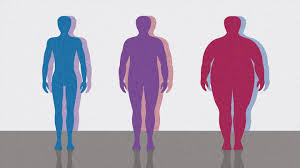Home » Course Layouts » Free Course Layout Udemy
This course introduces students to the economic approach to evaluating obesity. It focuses on attributable health care expenditures, quality-adjusted life years, productivity changes, consumer sovereignty, and the incentives and regulations that can be used to change individual adult, parent, and child behaviour.
0
22
English
English [CC]
FREE
- Learn basic syntax that can apply to any language.
- Learn what is a programming language and the basic concepts for beginners.
- Understand what is Javascript in it's truest form.
- Know the basic syntax of Javascript.
- Know some hidden quirks in Javascript.
Description
Readings
Books
Required- Frank RH. The Economic Naturalist: In Search of Explanations for Everyday Enigmas. Basic Books, 2008
- Finkelstein E, Zuckerman L. The Fattening of America: How the Economy Makes Us Fat, If It Matters, and What To Do About It. John Wiley & Sons, 2008
- Kessler D. The End of Overeating: Taking Control of the Insatiable American Appetite. Rodale Books, 2009
| TOPIC | READINGS |
|---|---|
| Session 1: Obesity Economics | Frank RH. The Economic Naturalist |
| Session 2: Basic Facts of Obesity as Presented by Finkelstein | Finkelstein Chapters 1 & 4 |
| Session 3: Consumers, Incentives, and Weight | Finkelstein Chapters 3, 5, and 6 |
| Session 4: Limitations of Consumer Sovereignty | Finkelstein Chapter 2 |
| Session 5: Role of Government and Potential Policies | Finkelstein Chapters 7-10 |
| Session 6: Who Benefits from Obesity? | Finkelstein Chapter 11 |
Course content
-
- Lecture 0: Course Introduction 01:00:00
- Lecture 1: Obesity Economics 02:10:00
-
- Lecture 2: Basic Facts of Obesity as Presented by Finkelstein 01:40:00
- Lecture 3: Consumers, Incentives, and Weight 00:55:00
- Lecture 4: Limitations of Consumer Sovereignty 00:55:00
- Lecture 5: Role of Government and Potential Policies 02:10:00
- Lecture 6: Who Benefits from Obesity? 02:00:00
N.A
- 5 stars0
- 4 stars0
- 3 stars0
- 2 stars0
- 1 stars0
No Reviews found for this course.
Instructor
OpenCoursa
Accessible Education for Everyone
5
5
6
24772
4637
We are an educational and skills marketplace to accommodate the needs of skills enhancement and free equal education across the globe to the millions. We are bringing courses and trainings every single day for our users. We welcome everyone woth all ages, all background to learn. There is so much available to learn and deliver to the people.
Explore Free Courses
Access valuable knowledge without any cost.
{"title":"","show_title":"0","post_type":"course","taxonomy":"course-cat","term":"engineering-skills,health-and-safety","post_ids":"","course_style":"free","featured_style":"course6","masonry":"","grid_columns":"clear4 col-md-3","column_width":"268","gutter":"30","grid_number":"4","infinite":"","pagination":"","grid_excerpt_length":"20","grid_link":"1","grid_search":"0","course_type":"","css_class":"","container_css":"","custom_css":""}










